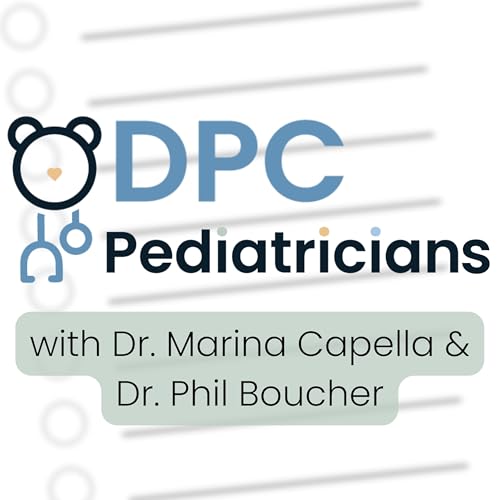Key Highlights:
In DPC pediatric practices, text messaging and selective telehealth use foster meaningful, efficient, and family-centered care. By embracing modern communication styles and setting clear boundaries, DPC physicians are redefining how pediatric care is delivered—with less stress, more connection, and greater flexibility for both families and providers.
1. Text Messaging for DPC Practices
* Texting is a great feature DPC clients love to use.
* It aligns with modern parents’ communication preferences—especially millennials who dislike phone calls.
* Texting creates a faster, more convenient, and less stressful experience for families.
2. Transitioning from Fee-for-Service Mindset
* Initial hesitation around texting (e.g., fear of being overwhelmed) disappears once providers experience the manageable volume of communication in DPC.
* The shift from a panel of thousands of patients to smaller, intentional patient panels reduces burnout and increases connection through text.
3. Efficient Care Without Office Visits
* Many issues can be resolved via text or photos—e.g., diaper rash, pink eye, or a bug bite—saving families time and unnecessary visits.
* Examples include avoiding full office visits for simple questions like constipation or bug bites.
4. Personalized, Ongoing Care
* Unlike large healthcare systems, DPC physicians build personal relationships with patients and families, leading to more thoughtful, individualized care.
* Patients often prefer asynchronous communication with someone they know and trust over impersonal telehealth with unfamiliar providers.
5. Managing Message Volume and Expectations
* Physicians set boundaries around response time (typically same day, not instant).
* Automated replies help set after-hours expectations and offer booking options or advice for urgent needs.
* Teams often triage messages first thing in the morning and during downtime.
6. Recognizing Urgency Without Overreacting
* Physicians discuss the psychology of interpreting urgency and how most parents are seeking reassurance—not demanding immediate appointments.
* They encourage trusting relationships where patients feel heard without needing instant access 24/7.
7. Minimal Use of Video Visits
* Contrary to initial expectations, video visits are rare.
* Asynchronous methods (texts, pictures, short videos) often work better than live video, which can be awkward or unnecessary.
* Video visits are occasionally used for behavioral health consults or special cases.
8. Texting Builds Trust & Peace of Mind
* Knowing they can easily reach their physician brings parents peace of mind.
* The model promotes trust and reduces unnecessary stress or reliance on unverified online sources.
This is a public episode. If you would like to discuss this with other subscribers or get access to bonus episodes, visit dpcpediatricians.substack.com
 22 Min.
22 Min. Sep 1 202535 Min.
Sep 1 202535 Min. Jul 31 202526 Min.
Jul 31 202526 Min. 25 Min.
25 Min. Jul 1 202520 Min.
Jul 1 202520 Min. Jun 26 202519 Min.
Jun 26 202519 Min. Jun 1 202525 Min.
Jun 1 202525 Min. 32 Min.
32 Min.

